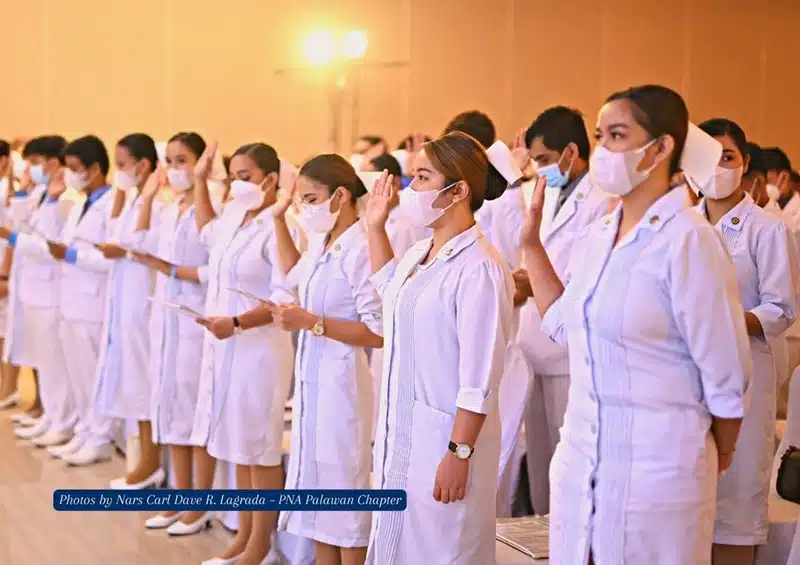
As the Philippine elections draw near, the fate of our nation lies in our hands. A new set of public servants will assume crucial government positions and be entrusted with the duty to serve the Filipino people. We must choose leaders who, despite their differences, share a common vision for progress and prioritize the welfare of citizens above everything else.
Yet today, the two officials holding the highest positions in the government have publicly clashed due to opposition between political parties and different approaches on sensitive topics. This has inevitably made people choose sides and create a division at the worst possible time. This underscores the importance of our ballots and how these can change the course of our lives and our country, especially in the healthcare sector.
The 2025 elections will allow us to choose the right candidates. The time for change is now. One vote can save nursing, one vote can save lives. Will you use yours?
Why the PH Healthcare is Bleeding Out
Like other developing countries, the Philippines is currently facing many pressing concerns that could greatly affect the lives and health of its people. When these problems do not get the attention and resolution they need from the government, it will lead to a downward spiral within the healthcare sector. The true victims of these scenarios are the patients who don’t receive timely and appropriate care, and the healthcare workers who selflessly show up and fulfill their sworn oath despite the burnout.
The Shame of Nurses’ Pay
The most critical issue that needs to be addressed immediately is the unjust compensation and benefits. Even though nurses have a bachelor’s degree and have spent a lot on their education, many of our local bedside nurses are paid as little as P10,000 to P15,000 monthly. With the ever-rising inflation rates, the salary that nurses receive can barely sustain their personal needs in their day-to-day living, let alone those who have a family to feed. The pay is never enough for the hard work put in after a long day of caring for the sick.
Most, if not all, nurses in the Philippines live paycheck to paycheck and can hardly get by. It is difficult to find employers who offer good benefits, such as life and health insurance or any sort of Employee Assistance Program (EAP). The unjust compensation and benefits are what compel nurses to leave bedside care for a better opportunity with a less taxing job.
Toxic Work Environment and Inadequate Protection for Nurses
Another challenge that local nurses face is the poor working conditions in hospitals. Due to the lack of funding from the government, nurses are forced to care for patients with limited to no resources. Oftentimes, these hospitals do not have enough medical supplies for patients, which forces nurses to improvise on what they have, giving truth to the saying “Nursing is both a science and an art”. An example of this is the use of gallon containers as a sharps disposal bin. While it is a clever idea to recycle those plastic containers, it is not safe for the nurses and hospital cleaners because this just increases the risk of getting pricked by used needles with no way of knowing who it was stuck in and what diseases they might have. Plastic gallons are not made for this reason, and the lack of budget has caused nurses to resort to such practices.
The growing number of people with chronic diseases also fills hospital beds quickly [1], and more often than not, patients are left with no choice but to be admitted to the hallways of overflowing medical and surgical wards. This puts nurses having to do their job in crowded areas with poor ventilation and close to each other, further increasing the chance of getting infected with any infectious diseases the patients may have. This does not provide a safe environment for the healthcare team, the patients, and their family members. It defeats the purpose of going to the hospital for treatments if patients go home with an illness that they didn’t have in the first place.
The poor working conditions have been notoriously highlighted during the recent COVID-19 pandemic. Private and public hospitals have all struggled to provide the necessary personal protective equipment, or PPE, to their staff since the virus causing COVID-19 is transmitted via contact with respiratory droplets. This has left nurses exposed to the virus in the workplace, which has caused a heavy toll on their physical, mental, and emotional well-being. According to research, about 40% of the nurses in private hospitals in the Philippines have resigned from their posts since the pandemic began, resulting in impaired hospital operations [2]. This emphasizes the need for the government to take action and prioritize providing a safe environment for the nurses.
Burnout and Unsafe Nurse-to-Patient Ratio
Another critical issue that needs to be addressed immediately by the government is the severe understaffing in most, if not all, of the public and private hospitals in the country. With all the ongoing healthcare struggles the country is currently facing, such as the low salaries and unsafe working conditions, nurses have abandoned their symbolic white uniforms for other careers that are less oppressive than nursing. A lot of nurses take on non-bedside nursing roles, such as in nursing informatics and school nursing, while others pursue higher education to get their master’s and doctorate to get into nursing leadership and management. Some also change their careers entirely and study a degree unrelated to nursing or use their nursing education as a prerequisite to other roles, like medical doctors and lawyers.
Some also prefer to practice their profession abroad, in search of greener pastures. It’s not uncommon to see more and more nurses fleeing the country to migrate to developed countries for better pay and safer ratios. Ironically, there are so many Filipino nurses worldwide while the country is struggling with retention. It is very disheartening to see how Filipino nurses see their value in a foreign country more than in their own home.
And when these nurses quit, they leave behind colleagues and fellow nurses who are also struggling for the same reasons but have chosen to stay. These nurses are the ones who feel the heavy burden of being short-staffed, continuing to look after the patients in unsafe ratios, and multitasking too much to the point of exhaustion. According to the Filipino Nurses United, some nurses attend to 20 to 50 patients per shift in a general ward, a huge difference from the Department of Health’s standard ratio of 1 nurse to 12 patients in the same settings. [4]
What the Elections Meant for Filipino Nurses Both Local and Overseas
As the Filipino people select their next leaders, the future of healthcare hangs in the balance. The newly elected leaders will be the ones responsible for passing bills and policies that can strengthen public health, improve working conditions, and increase nurses’ pay. They will also have the authority to review existing laws and make the necessary changes to keep up with the latest trends and advancements in healthcare. With that much power in their hands, they have the chance to make a difference.
While this is primarily good news, it could also mean putting in place strict regulations that could potentially affect nurses both locally and abroad. Similar to what happened in 2020 during the COVID-19 pandemic, the Philippine government placed a deployment ban on health workers, especially nurses, in an effort to curb the steadily increasing number of nurses who are going abroad, which contributed to staffing shortages. This move has been criticized mainly because it has affected the nurses’ rights to freely choose their employment and job security [3].
The elected officials can either be the instrument to end the dire situations of healthcare workers or worsen them. It should be emphasized that the vote goes to the candidates who also value and prioritize healthcare to do something for its betterment. While a single vote can seem so insignificant in the grand scheme of things, when hundreds and thousands of votes come together, the real change begins.
What You Can Do Now
Your voice matters in the fight for injustice against healthcare workers. Nurses deserve so much more. To be an effective voter, you have to practice due diligence in choosing the right candidates. Make informed decisions when practicing your right to vote!
Register and Do Your Research
When choosing the right candidates, you should research their platforms and their insights into the healthcare sector. Get to know them better and try to gauge their understanding of the current plight that nurses face. This way, we’ll be able to see if they are truly an ally for this reform.
However, all of these efforts will go to waste if you are not registered as a voter. For local nurses, visit the nearest Commission on Elections (COMELEC) office if you are unsure of your status. If you are abroad, you can visit the COMELEC website or go directly to your PH Embassy.
Encourage Fellow Nurses And Students To Vote
Every vote counts. As the elections come close, encourage your colleagues and other people to vote. Remind them that it is a legal right and obligation as citizens of the Philippines to participate in such occasions. Educate them, if necessary, and emphasize how this political event can transform the future of nursing.
Hold Leaders Accountable
Since the election is still coming and no leaders are yet in place, you can hold the present leaders accountable. Demand, ask questions, and see what concrete steps have been taken in promoting the healthcare sector.
References
- https://www.abcsforglobalhealth.org/prevalent-chronic-diseases-in-the-philippines-a-comprehensive-overview
- https://pmc.ncbi.nlm.nih.gov/articles/PMC9126038/
- https://lawreview.ust.edu.ph/to-ban-or-not-to-ban-constitutional-issues-on-the-deployment-ban-of-filipino-nurses/
- https://www.philstar.com/headlines/2023/01/24/2239743/nurses-group-urges-ilo-probe-work-standard-violations#







